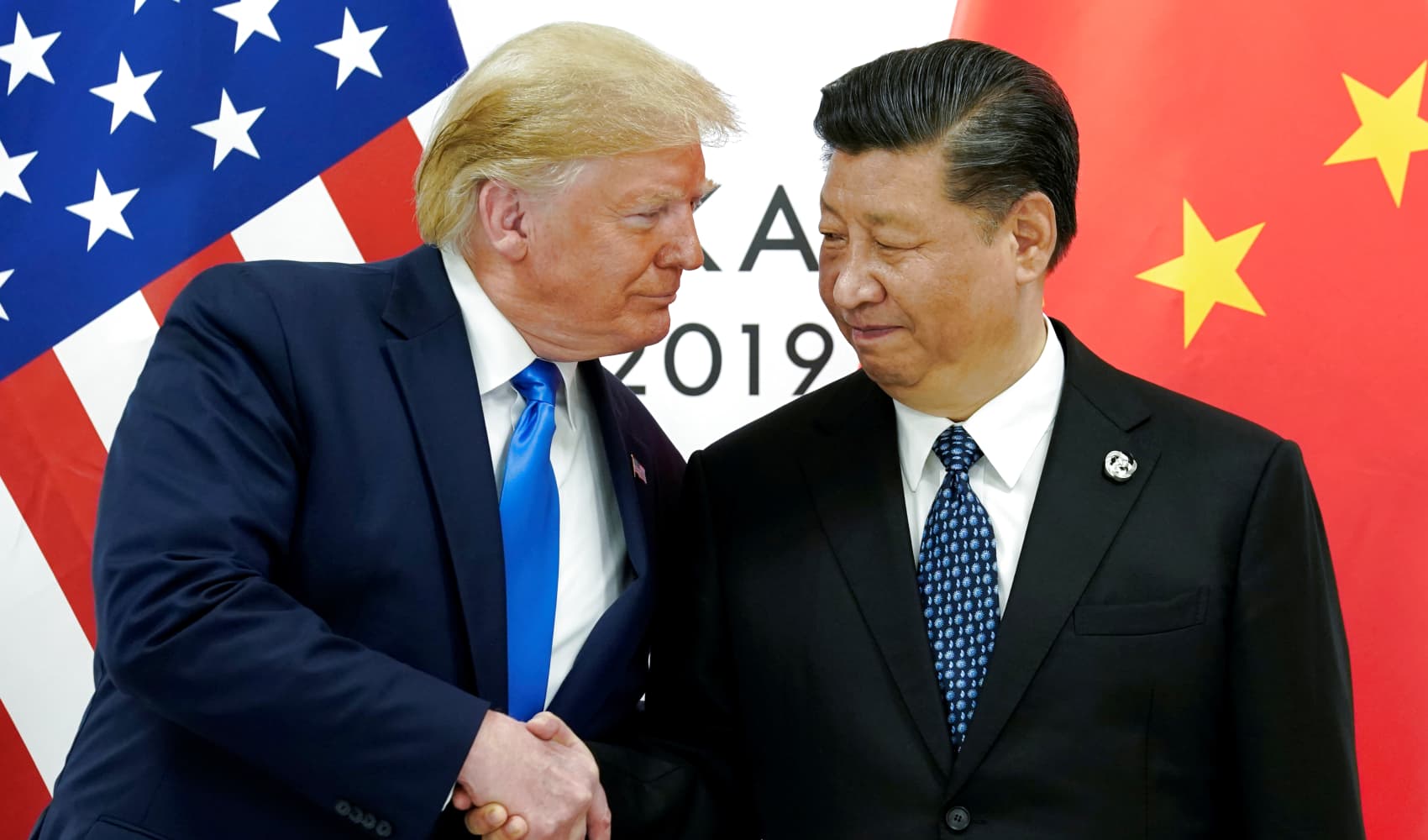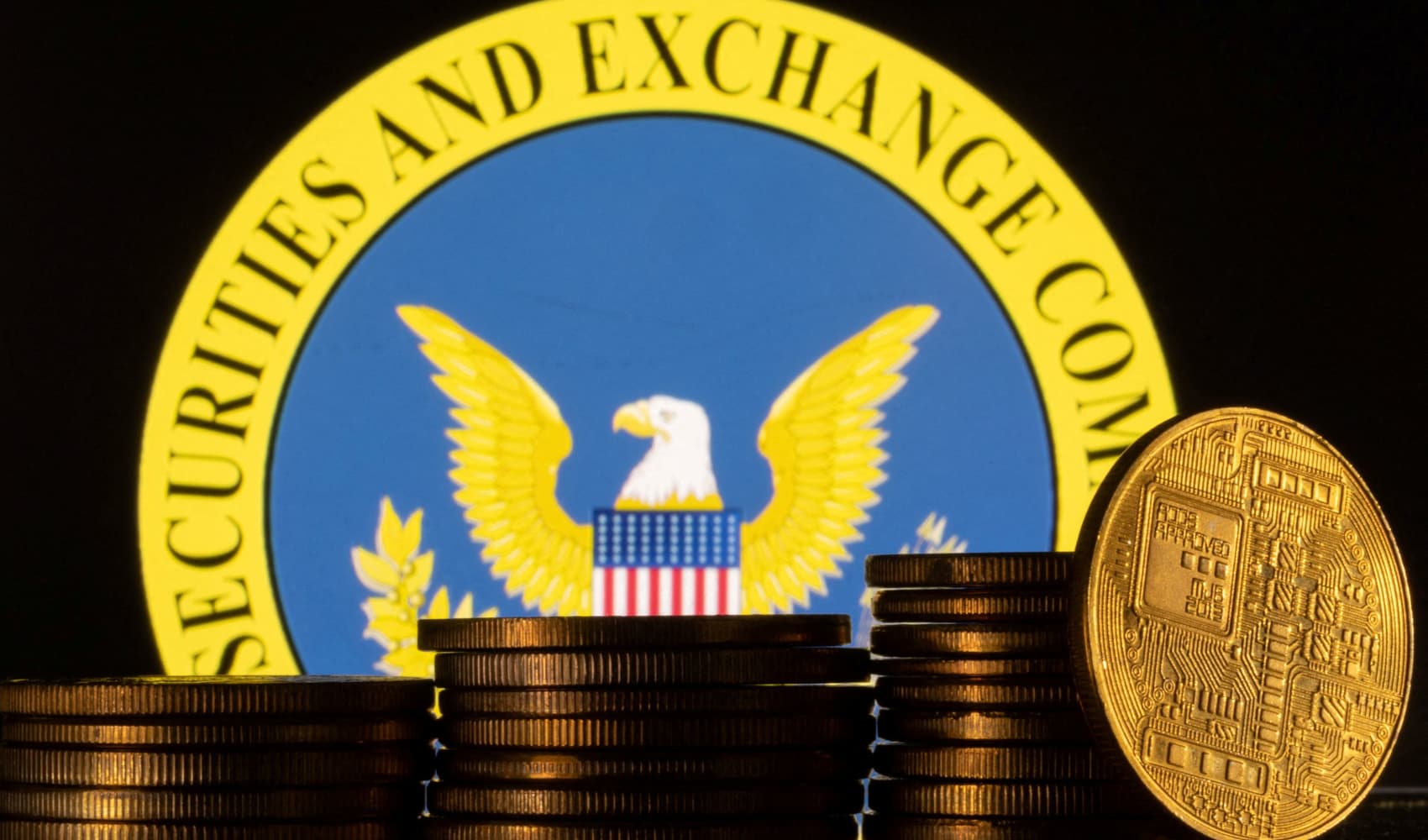CNBC: Trade Deal a 'Trump Put'? Market Impact Explained
CNBC Daily Open: Has the U.S.-China Trade Deal Created a ‘Trump Put’?
Introduction: A Sigh of Relief or a Calculated Risk?
The air crackled with anticipation, and then it happened: the U.S. and China, after what felt like an eternity of trade war skirmishes, announced an initial trade deal. But is this a genuine olive branch, a tactical pause, or, as some are suggesting, a carefully constructed "Trump put" designed to prop up the market? Let's dive into the details and dissect what this agreement really means for investors, businesses, and the global economy.
Decoding the Deal: Tariffs Take a Backseat (For Now)
The headline grabber from this trade agreement is the reduction of "reciprocal" tariffs. Specifically, the U.S. and China agreed to slash tariffs from a hefty 125% to a more palatable 10% for a 90-day period. That's a significant cut! But what does "reciprocal" really mean here, and why just 90 days? It's crucial to look beyond the surface.
Understanding Reciprocal Tariffs
Reciprocal tariffs are essentially tariffs that each country imposes on the other's goods. This tit-for-tat approach has been a hallmark of the U.S.-China trade war. Reducing these barriers is a welcome step, but the devil's in the details: What goods are affected, and are there any hidden conditions?
The 90-Day Time Bomb?
Why 90 days? Is this a genuine attempt at long-term cooperation, or a short-term band-aid? A cynical view might suggest that this provides a temporary boost to the economy and stock market, just in time for certain events (like, say, an election). Is it a gamble? Of course, it is! The market is like a ship at sea, and all we can do is navigate it.
Beijing's Perspective: A Victory Lap?
It’s fascinating to see how the other side is portraying the agreement. Chinese officials, influencers, and state-run media have been quick to paint this trade agreement as a major victory for China. But is it really? What are they highlighting, and what are they conveniently leaving out?
Spin Masters at Work
Every country has its own narrative. Beijing is likely emphasizing the tariff reductions on Chinese goods entering the U.S., while downplaying any concessions they may have made. We need to be critical thinkers here: look at the data, not just the rhetoric.
Global Banks' Optimism: A Harbinger of Boom?
Now, here's where things get interesting. With the tariff tensions seemingly easing, major global banks are reportedly growing optimistic about China's economy and market in 2025. Is this a genuine vote of confidence, or are they simply reacting to the immediate positive sentiment?
2025: Looking into the Crystal Ball
2025 feels like a long way off! Economic forecasts are notoriously unreliable, so we should always view them with a healthy dose of skepticism. However, the optimism from these financial institutions could indicate a belief that this trade deal will provide a foundation for future growth in China.
Stock Market Surge: A Shot in the Arm or a Sugar Rush?
News of the U.S.-China trade deal sent U.S. stocks soaring on Monday. Technology and consumer discretionary stocks led the charge. Was this a justified reaction, or is the market getting ahead of itself? It’s crucial to distinguish between a fundamental shift and a purely emotional response.
Tech and Consumer Discretionary: The Biggest Winners?
These sectors are particularly sensitive to trade tensions. Tech companies rely heavily on global supply chains, and consumer discretionary stocks are tied to consumer confidence. Any easing of trade tensions would naturally be seen as a positive for these industries.
The "Trump Put" Resurrected: Politics and the Market
Ah, the "Trump put." The idea that the President will intervene to prevent a market crash, either through policy or rhetoric, has been around for years. This trade agreement has resurrected that notion. Is the market being artificially supported by political maneuvering?
Defining the "Trump Put"
The term "Trump put" implies that the President is willing to take steps, even if they are unconventional, to keep the stock market afloat. This can involve trade deals, tax cuts, or even just strong rhetoric designed to boost investor confidence.
The Perils of Market Manipulation
While a rising stock market is generally seen as a positive, artificially propping it up can have negative consequences. It can lead to bubbles, distort investment decisions, and ultimately result in a more painful correction down the road. Is this deal a strategic investment or a house of cards?
Technical Indicators: Green Lights Flashing?
The S&P 500 has already broken through a key technical indicator and is now eyeing another. What are these indicators, and what do they suggest about the market's future direction? Technical analysis can be a useful tool, but it’s important to remember that past performance is not always indicative of future results.
Understanding Technical Indicators
Technical indicators are mathematical calculations based on price and volume data that are used to identify patterns and potential trading opportunities. Common indicators include moving averages, relative strength index (RSI), and MACD. But remember the market is a fickle mistress, and a technical indicator is not a crystal ball!
Beyond the Headlines: What's Missing from the Narrative?
It's easy to get caught up in the headlines and the immediate market reaction. But what are we missing? What are the potential risks and downsides of this trade deal that are not being widely discussed? Remember, the news rarely shows the whole picture.
The Lingering Threat of Future Disputes
This is just an initial agreement. Many thorny issues remain unresolved, including intellectual property rights, forced technology transfer, and China's state-owned enterprises. Future disputes could easily derail the progress made so far.
The Impact on Small Businesses
While large corporations may benefit from the easing of trade tensions, what about small businesses? Are they getting a fair deal? We need to consider the impact on all segments of the economy, not just the big players.
Navigating the Uncertainty: A Guide for Investors
So, what should investors do in light of this trade deal? Should they jump in headfirst, or proceed with caution? There's no one-size-fits-all answer, but here are a few general principles to keep in mind.
Diversification is Key
Don't put all your eggs in one basket! Diversify your portfolio across different asset classes, sectors, and geographic regions. This will help mitigate risk and protect your investments from unforeseen events.
Do Your Own Research
Don't blindly follow the herd. Do your own research, consult with a financial advisor, and make informed decisions based on your own individual circumstances. It's your money, and you are in charge.
Conclusion: A Tentative Truce, Not a Guaranteed Victory
The U.S.-China trade deal is undoubtedly a positive development, but it's important to view it with a critical eye. It's a tentative truce, not a guaranteed victory. While the market may have reacted positively, significant risks and uncertainties remain. As investors, we must stay informed, stay diversified, and stay prepared for whatever the future may hold. Is the "Trump put" in full effect? Only time will tell. We can hope for clear skies but should prepare to set sail in any storm.
Frequently Asked Questions
- What are the main benefits of the U.S.-China trade deal? The main benefits include reduced tariffs, which can lead to lower prices for consumers and increased trade between the two countries. It also boosts investor confidence.
- What are the biggest risks associated with the deal? The biggest risks include the potential for future disputes over unresolved issues like intellectual property and the short-term nature of the tariff reductions.
- How does this trade deal affect small businesses? The impact on small businesses is mixed. Some may benefit from increased access to foreign markets, while others may face increased competition.
- Is the "Trump put" a good thing for the economy? While a rising stock market can be beneficial, artificially propping it up can lead to bubbles and other distortions.
- What is a technical indicator and how can it help with investing? Technical indicators are calculations based on price and volume data that can help identify patterns and potential trading opportunities. However, they should be used in conjunction with other forms of analysis.

